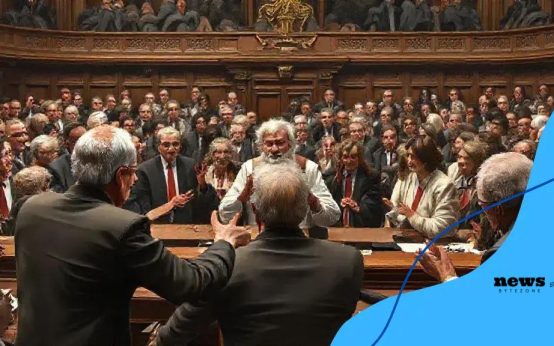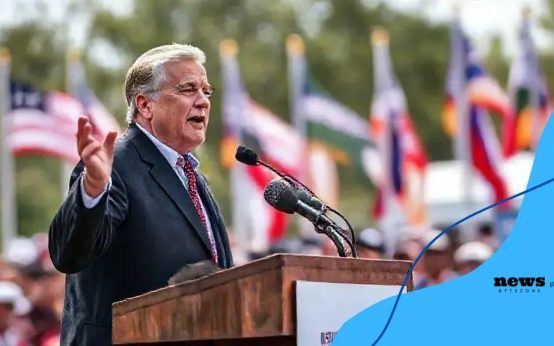The media plays a crucial role in shaping government discussions by informing the public, setting agendas, and influencing opinions, which empowers citizens to engage actively in political processes.
GovernmentDebate is more than just a topic; it’s a dialogue that shapes our future. Are you curious about how these debates affect your everyday life? Let’s explore the pressing issues together.
Understanding the impact of government policies
Understanding the impact of government policies is crucial for every citizen. These policies shape our society, influencing everything from education to healthcare. Let’s dive deeper into how they affect our daily lives.
The Role of Government Policies
Government policies serve as a framework for various programs and initiatives. They can drive change and promote fairness within communities. When effective, these policies can uplift society, but when flawed, they may lead to inequality or confusion.
Key Areas Affected by Policies
- Healthcare: Policies determine access to medical services.
- Education: Rules govern funding and accessibility of schools.
- Economy: Economic policies influence job creation and wages.
- Environment: Regulations impact sustainability efforts and conservation.
The outcomes of these policies can vary significantly based on their design and implementation. For instance, in the realm of healthcare, government decisions can either facilitate access to essential services or limit it, resulting in disparities among populations. Similarly, education policies can shape curriculum standards, aiming for an informed and skilled workforce.
Moreover, economic policies can stimulate growth or lead to recessions if not managed properly. A strategic approach ensures that resources are allocated effectively, benefitting society as a whole. Continuous evaluation and revision of these policies are essential to address emerging challenges and opportunities.
Key issues in today’s government debates
Key issues in today’s government debates affect every citizen’s life. These topics often become the center of discussions, influencing policies and actions that shape our society.
Healthcare
One significant issue is healthcare. Many people are concerned about access to medical services and affordability. Debates around universal healthcare vs. privatized systems often arise, each offering different solutions to ensure citizens receive quality care.
Education
Another crucial topic is education. Discussions on funding public schools and student loan debt have intensified. While some advocate for increased funding, others suggest reforms that focus on results and accountability.
- Standardized Testing: Debates focus on whether testing truly reflects student abilities.
- Access to Education: Ensuring all students have equal opportunities is a central concern.
- Curriculum Changes: What children are taught has a direct effect on future generations.
Climate change also plays a vital role in government discussions. The need for sustainable policies has never been more urgent. Many advocate for aggressive measures to reduce emissions, while others argue for a balanced approach that considers economic impacts.
Economic issues remain at the forefront as well. Topics such as taxation, job creation, and minimum wage drives debates on how best to foster economic growth while supporting vulnerable populations. These discussions emphasize the importance of policies that can stimulate the economy without leaving anyone behind.
How citizens can influence government decisions

Citizens play a vital role in influencing government decisions. Through various means, individuals can make their voices heard and effect change in their communities and beyond.
Voting
One of the most powerful tools citizens have is their vote. When individuals participate in elections, they help choose representatives who align with their values. Engaging in local, state, and national elections ensures that their interests are considered in policy-making.
Advocacy
Citizens can also influence decisions through advocacy. Joining organizations or movements that support particular issues amplifies their voices. Whether it’s environmental concerns, education reform, or healthcare access, collective action can lead to significant changes.
- Petitions: Collecting signatures can demonstrate public support for a cause.
- Public Demonstrations: Marches and rallies raise awareness about critical issues.
- Contacting Representatives: Writing letters or emails can inform elected officials about constituents’ concerns.
Social media has become an essential platform for citizens to express opinions and mobilize support. Campaigns that trend online can influence policies and mandate responses from government officials. Utilizing hashtags and sharing information can create awareness and build a community of support.
Education is crucial for citizens to influence government decisions. Understanding how government works allows individuals to navigate the political landscape effectively. Attending town hall meetings and participating in discussions on local governance can equip citizens with knowledge and skills to advocate for change directly.
Analyzing solutions to common governmental challenges
Analyzing solutions to common governmental challenges is essential for improving public services and policy effectiveness. Governments face various issues that impact their ability to serve citizens effectively.
Budget Management
One major challenge is budget management. Proper allocation of resources ensures that essential services like education, healthcare, and infrastructure receive adequate funding. Innovative budgeting techniques, such as zero-based budgeting, can help pinpoint specific needs and streamline spending.
Transparency and Accountability
Another critical factor is the need for transparency and accountability. Governments need to build trust with their citizens. Implementing open data initiatives allows the public to access information about government spending and decision-making processes.
- Regular Reports: Publishing performance reports can inform citizens of progress and challenges.
- Citizen Engagement: Involving citizens in the budgeting process boosts accountability.
- Third-party Audits: Independent reviews can provide insights into government efficacy.
Addressing issues surrounding public trust involves establishing clear communication channels. Effective communication helps citizens understand government actions and decisions. Utilizing social media and community forums can foster dialogue and improve relationships between citizens and officials.
Additionally, governments must invest in technology to enhance their services. Digital tools can streamline processes, making it easier for citizens to engage with their government. Online platforms for feedback and service requests can improve responsiveness and lead to better outcomes.
The role of media in shaping government discussions
The role of media in shaping government discussions is vital in today’s society. Media serves as the primary source of information for many citizens, influencing their understanding of key issues.
Informing the Public
One significant function of media is to inform the public about government actions and policies. News reports and investigative journalism provide insights into the political landscape. By covering important stories, media outlets help citizens stay informed about current events.
Agenda Setting
Media also plays a crucial role in agenda setting. By choosing which stories to highlight, media can shape the issues that are prioritized in public discussions. This can impact government policies, as lawmakers may respond to public concern about specific topics.
- Coverage of Elections: How media portrays candidates can influence voter perceptions.
- Spotlight on Issues: Topics like climate change or healthcare often trend based on media coverage.
- Public Opinion Polling: Media often reports on polls that gauge citizen opinions.
Furthermore, social media has transformed the way information is shared. Many people turn to platforms like Twitter, Facebook, and Instagram for news updates. This shift has enabled faster dissemination of information, allowing political discussions to escalate quickly.
However, the rise of social media also presents challenges. Misinformation can spread rapidly, leading to confusion and distrust. It’s essential for citizens to critically evaluate media sources to ensure they receive accurate information. Understanding the role of media empowers citizens to engage more effectively in political discussions.
FAQ – Media’s Role in Shaping Government Discussions
How does media influence public opinion?
Media shapes public perception by selecting which stories to cover, impacting what issues are prioritized.
What can citizens do to engage with media?
Citizens can follow reputable news sources, participate in discussions, and share information on social media.
Why is media transparency important?
Transparency in media helps build trust with the public, ensuring that citizens can access accurate information.
How can critical thinking improve media consumption?
Evaluating sources and questioning the information can help discern fact from misinformation, leading to informed decisions.



 StateBudgets: Understanding the Impact on Local Communities
StateBudgets: Understanding the Impact on Local Communities  Legislative battles shaping our future: what to expect
Legislative battles shaping our future: what to expect  PresidentialSpeech: Understanding its Impact and Importance
PresidentialSpeech: Understanding its Impact and Importance